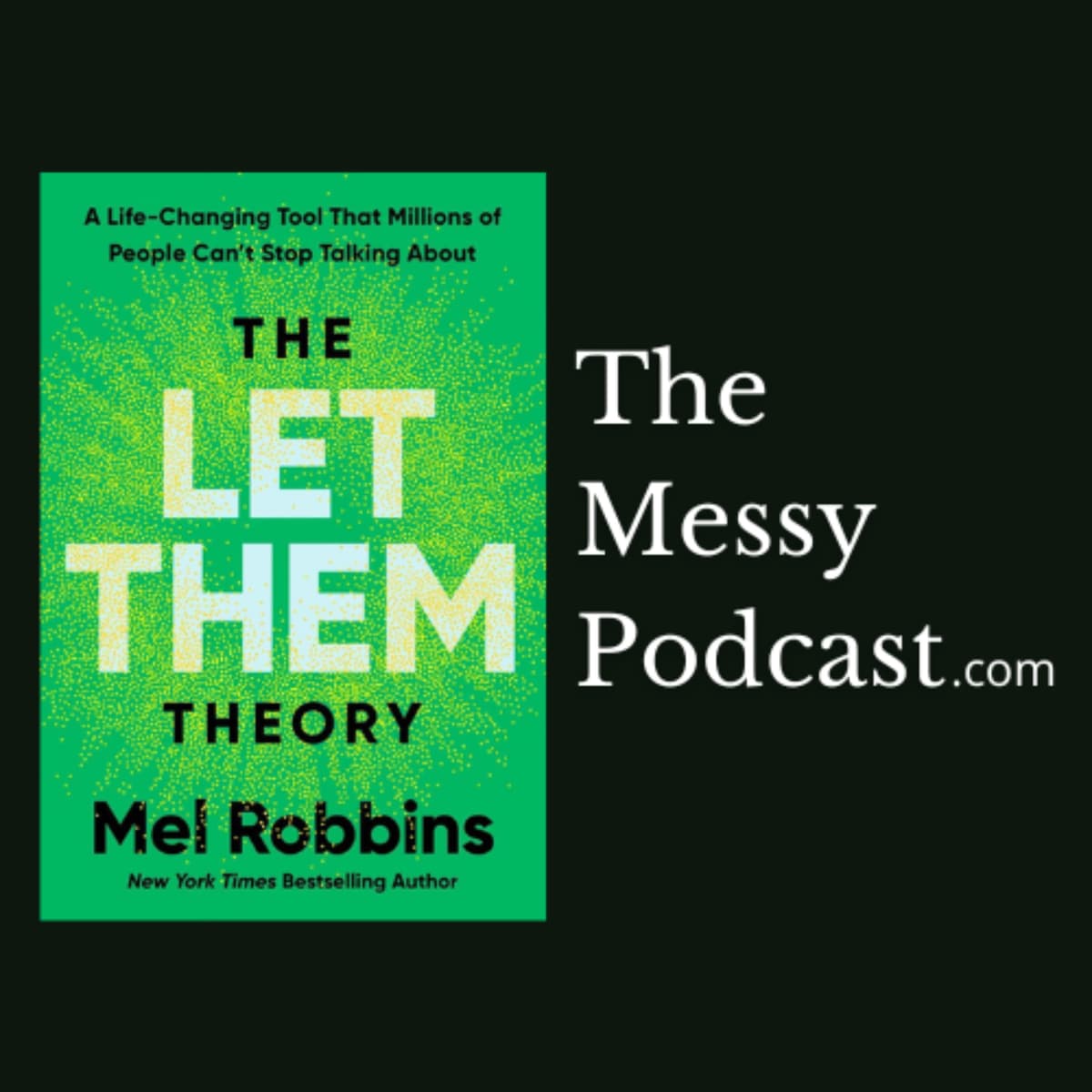The Let Them Theory by Mel Robbins | The Messy Podcast
Episode: S2 EP7 | Yes, Life Isn’t Fair
Release Date: January 21, 2025
Introduction
In Season 2, Episode 7 of The Messy Podcast, titled Yes, Life Isn’t Fair, the hosts delve into Mel Robbins' transformative concept, The Let Them Theory. This episode explores the profound insights from Robbins' work, focusing on the inherent unfairness of life, the detrimental effects of chronic comparison, and strategies to harness the positive aspects of comparison for personal growth.
Acknowledging Life's Unfairness
The conversation begins with an unflinching acknowledgment of life's inherent unfairness.
Host 1 states, “Yes, life isn't fair” (01:03), setting the tone for a candid discussion.
Host 2 elaborates, “Imagine trying to build a house on, like, shaky ground. It’s not going to be stable” (01:38), emphasizing the necessity of accepting life's unfairness as a foundation for personal development.
Key Points:
- Life presents numerous unfair situations, such as crippling student debt, health disparities, and global conflicts.
- Acceptance of this unfairness is crucial for growth, preventing perpetual disappointment and stagnation.
The Dual Nature of Comparison
The hosts explore how comparison can be both harmful and beneficial, categorizing it into two distinct types.
Toxic Comparison
Host 1 discusses the paralyzing effect of focusing on others' successes:
“Focusing on other people's successes can actually paralyze us” (01:59).
Host 2 adds, “We end up like sabotaging our own progress” (02:16), highlighting how envy can undermine self-esteem and personal achievements.
Illustrative Story:
The narrative of Sawyer and Kendall exemplifies toxic comparison.
Host 2 explains, “Sawyer gets fixated on all of Kendall's advantages. It just leads to self-doubt and frustration” (03:12), showcasing the emotional toll of upward comparison.
Beneficial Comparison
Conversely, the hosts introduce the concept of downward comparison, which fosters gratitude and perspective:
Host 2 mentions, “This type of comparison can be a good way to practice gratitude” (03:42).
Host 1 reinforces, “It’s about shifting our focus from what we're missing to what we already have” (06:37).
Key Points:
- Upward Comparison: Leads to feelings of inadequacy by comparing oneself to those perceived as better off.
- Downward Comparison: Encourages appreciation by recognizing one’s own privileges and strengths.
The Let Them Philosophy
Central to the episode is The Let Them Theory, which advocates transforming envy into inspiration.
Host 2 describes it as, “letting other people's successes motivate us instead of making us feel bad” (05:32).
Host 1 summarizes, “It's like turning that feeling of envy into inspiration” (05:46).
Key Insights:
- Viewing others' achievements as learning opportunities rather than threats.
- Embracing a collaborative mindset, akin to playing cards with others rather than against them (06:20).
Practical Strategies to Overcome Chronic Comparison
The hosts outline actionable steps to minimize the negative impact of comparison and leverage its positive potential.
1. Recognizing and Accepting Differences
Host 2 emphasizes, “let them” involves accepting what we cannot change about ourselves or others (07:50).
Host 1 adds, “It’s like saying, okay, that's their life. Good for them” (08:05).
Techniques:
- Acknowledge feelings of jealousy without judgment.
- Separate others' successes from personal worth.
2. Shifting Focus to Personal Strengths
Host 1 suggests, “making a list of your strengths, skills, and accomplishments” (10:56).
Host 2 concurs, “create our own definition of success” (11:27).
Techniques:
- Identify and document personal talents and achievements.
- Set meaningful, value-driven goals independent of others' benchmarks.
3. Mindfulness and Self-Compassion
Host 2 states, “we can try to just observe [negative feelings] without judging ourselves” (12:15).
Host 1 encourages, “quieting that inner critic and replacing it with a voice of encouragement” (12:42).
Techniques:
- Practice mindfulness to become aware of and manage negative thoughts.
- Cultivate self-kindness, treating oneself with the same compassion offered to friends.
4. Setting Healthy Social Media Boundaries
Host 2 advises, “limit your screen time or be pickier about who you follow” (14:28).
Host 1 refers to this as, “a mental detox” (14:42).
Techniques:
- Restrict the time spent on social media platforms.
- Curate social media feeds to include uplifting and supportive content.
5. Practicing Gratitude and Positive Perspective
Host 2 recommends, “practice gratitude” when caught in comparison spirals (15:07).
Host 1 agrees, “focus on the abundance we already have” (16:00).
Techniques:
- Regularly list things you are grateful for.
- Reframe comparisons by focusing on personal blessings and achievements.
Conclusion
The episode culminates in a powerful affirmation that comparison is a conscious choice.
Host 1 concludes, “comparison is a choice. We could let it torture us, or we can let it teach us” (17:00).
Host 2 reinforces, “you're the one writing your story, and you have the power to create a life that is both meaningful and fulfilling” (17:43).
Final Takeaways:
- Embrace The Let Them Theory by transforming envy into motivation.
- Implement practical strategies to reduce harmful comparisons and enhance personal growth.
- Focus on self-acceptance, gratitude, and mindful living to foster a fulfilling and authentic life.
This episode of The Messy Podcast offers a comprehensive exploration of how to navigate life's inherent unfairness and the pervasive habit of comparison. By embracing Mel Robbins' Let Them Theory, listeners are equipped with strategies to turn potential sources of negativity into catalysts for personal empowerment and growth.
